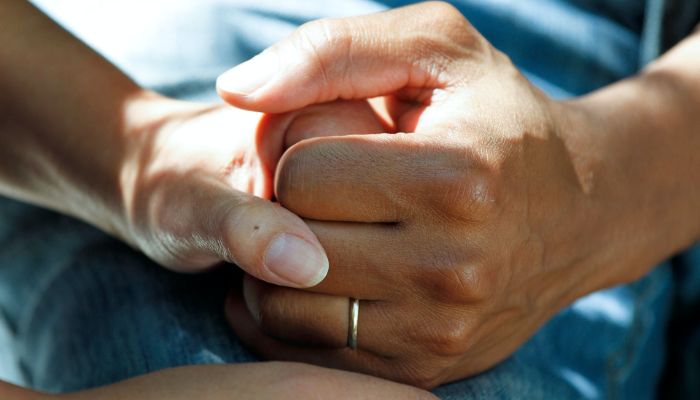Strategies for Managing Depression in Elderly Hospice Patients
Learning different strategies for managing depression in elderly hospice patients can be beneficial for both patients and family members. Here are some tips for helping elderly hospice patients manage depression.

Depression is usually a common occurrence among elderly hospice patients. Since this population often experiences a wide range of physical and psychological symptoms, it can be difficult to manage depression effectively.
For many elderly hospice patients, being alone and isolated from friends and family can be a major contributing factor to feelings of depression. In these cases, it's important to ensure that elderly hospice patients receive the proper care for their needs.
Learning different strategies for managing depression in elderly hospice patients can be beneficial for both patients and family members. Here are some tips for helping elderly hospice patients manage depression:
1. Encourage social interaction and companionship
Having a companion can provide an elderly hospice patient with emotional support, which can help reduce feelings of loneliness and isolation. Family members or volunteers should make an effort to spend quality time with the patient and provide them with meaningful conversation.
Interacting with other people can also be beneficial for elderly hospice patients. Initiating activities such as group outings, visiting local attractions, or attending religious services can provide a sense of community and socialization that can be beneficial for managing depression.
2. Provide education and awareness about depression
It's important to educate elderly hospice patients on the signs and symptoms of depression so they may recognize when it is occurring and know when to seek help. If possible, family members should also be educated on how to recognize signs of depression so they can provide the needed support and resources to their loved ones.
The different signs and symptoms of depression may differ depending on the individual’s mental health. However, some common indicators can include:
-
Changes in appetite or sleep patterns
-
Lack of interest in activities they once enjoyed
-
Feelings of hopelessness or worthlessness
3. Encourage physical activity
Elderly people in hospice care often experience physical limitations, making it difficult for them to engage in regular physical activity. However, the benefits of exercise for depression cannot be underestimated. Even light physical activity, such as walking or stretching, can provide elderly hospice patients with an increased sense of wellness and help reduce symptoms of depression.
Just a little bit of physical activity can also give elderly hospice patients something to look forward to each day. Encouraging exercise and motivating them to stay active can be key in managing depression.
4. Provide hobbies and activities
Having a new hobby or activity can help elderly hospice patients find purpose and enjoyment in life. Activities such as painting, gardening, baking, or jewelry making can provide elderly hospice patients with a sense of accomplishment that can help boost mood and reduce depression.
Engaging in activities together can be especially beneficial for providing meaningful companionship. In hospice care, this is an important opportunity for family members to create lasting memories with their loved ones.
5. Utilize medication properly
Depending on the severity of depression in an elderly hospice patient, medication can be useful for treatment and management. However, it's important to remember that no two people are alike. Medications should only be prescribed by a trained medical professional.
Medications can cause more harm than good if not taken properly. Family members need to be aware of the risks and side effects associated with medications and ensure that their loved one is taking them as directed by their doctor.
6. Psychotherapy intervention
Psychotherapy interventions can be helpful in addressing the underlying causes of depression in elderly hospice patients. These can be especially beneficial for those who are struggling to cope with difficult emotions or facing end-of-life issues.
Psychotherapists can help elderly hospice patients explore their feelings and develop strategies for coping. They can also provide the patient with a safe space to express any fears or anxieties they may have.
Talking to someone in hospice care can be tricky, given their limited time. However, psychotherapy provides an avenue where these conversations can take place in a meaningful and productive way.
7. Plan healthy meals
Another way to help manage depression in elderly hospice patients is by planning healthy meals. Eating a nutritious diet will not only help promote physical well-being, but also improve emotional well-being.
Planning and preparing meals ahead of time can make it easier to provide elderly loved ones with the sustenance they need while they are in hospice care. Ensuring their diet consists of fresh fruits, vegetables, lean proteins, and complex carbohydrates is key. Additionally, limiting processed foods and sugary snacks can help promote healthy nutrition.
8. Practice mindfulness
Practicing mindfulness is a powerful tool for helping elderly hospice patients manage depression. Mindfulness practices help to focus awareness on the present moment and can be used as an effective coping strategy for difficult emotions.
Activities such as focusing on breathing, progressive muscle relaxation, guided imagery, and visualization techniques can all be used to foster a sense of calm and peace in elderly people.
The Bottom Line
Depression is a common and serious problem for elderly hospice patients. Family members and professionals can play an important role in managing depression by incorporating various strategies. With the right care, elderly hospice patients can find comfort and peace during this difficult time.
